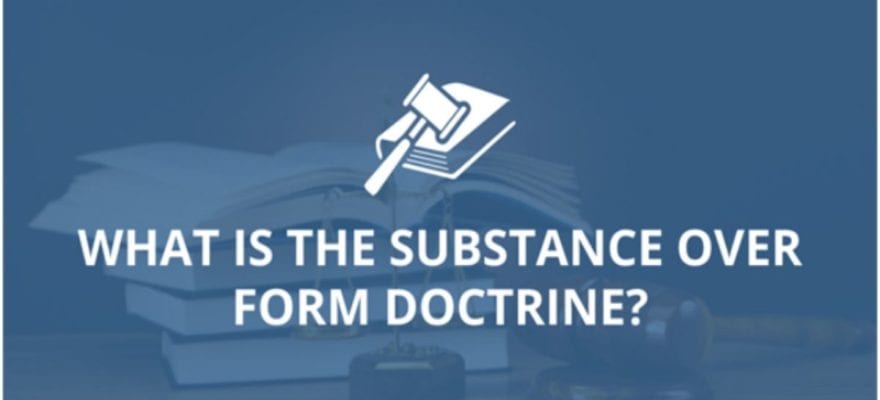Substance over form is both a principle and a doctrine. As an accounting principle, it is designed to ensure that an entity’s financial statements provide an accurate and complete overview of its events and transactions. These statements measure and report the economic impact of a transaction instead of its legal form, which could conceivably mislead people on its true intent.
The substance over form doctrine allows the IRS to ignore an arrangement’s legal form and examine its actual substance, with the goal of preventing artificial structures from being used to avoid paying taxes. It arose from a 1935 Supreme Court case that disallowed tax benefits for a transaction with a form that varies from its substance.
An Overview of Gregory v. Helvering
On September 18, 1928, Evelyn Gregory created a company called Averill Corp. She was also the owner of the United Mortgage Company, which owned 1,000 shares of stock in Monitor Securities Corporation. Three days later, Ms. Gregory transferred these shares to Averill, which she then dissolved on September 24.
After taking ownership of the Monitor stock, she sold them for over $133,000, claiming a cost of over $57,000 and a capital net gain of $76,000. On her 1928 income tax return, she reported the transaction as a tax-free corporate reorganization.
Guy Helvering, the Commissioner of Internal Revenue, insisted that there had been no reorganization in economic substance. Ms. Gregory owned all three companies and simply used a legal strategy to create the impression of a reorganization so that she could sell the Monitor stock without paying more income tax.
In 1932, the Board of Tax Appeals (which preceded the U.S. Tax Court) ruled in favor of Ms. Gregory, but its decision was reversed by the U.S. Court of Appeals for the Second Circuit. The U.S. Supreme Court also ruled in favor of Commissioner Helvering, stating that the Revenue Act did not support reorganizations simply for the purpose of avoiding taxes.
Since this 1935 case, the doctrine of substance over form has dictated that taxpayers must abide by the economic substance of a transaction even if that substance is inconsistent with its legal form. The government started utilizing this doctrine to rectify situations where the taxpayer has willfully misrepresented a transaction in order to derive a tax benefit.
Today, the substance over form doctrine is regarded as the seminal form of two other doctrines:
- Economic Substance Doctrine, which denies tax benefits for transactions that have no apparent business purpose and are solely designed to avoid tax liability.
- Step Transaction Doctrine, which combines a series of technically separate steps, resulting in tax treatment as a single integrated event.
How the IRS Uses the Substance Over Form Doctrine
The IRS uses the substance over form doctrine to stop taxpayers from changing the form of a transaction to derive a financial benefit. Courts have typically allowed the IRS to make a claim of substance over form while requiring the taxpayer to justify their chosen transaction form, making the doctrine an effective tool for tax authorities.
With corporate acquisitions, the doctrine has been used to question the ability of the acquiring entity to step up the purchased company’s assets to fair market value. The transaction is viewed as if the acquired company sold its assets to the purchaser and then liquidated, creating one tax level and a step up of these assets on an inside basis.
If the IRS applied the substance over form doctrine, the acquiring corporation could not be the actual buyer of the target company or the transaction could not be a qualified stock purchase. The buyer would lose a tax benefit because, under the doctrine, it could not make a step-up election on the assets it acquired.
Contact a New Jersey Tax Law Attorney
If the IRS audits you and makes a claim of substance over form for any of your financial transactions, you need an experienced tax attorney who understands the law thoroughly enough to refute the government position and prevent you from benefiting from a legitimate tax advantage.
Paladini Law is a dedicated tax firm that provides counsel and representation to New Jersey taxpayers and businesses. Attorney Brad Paladini is one of the few legal professionals in the state who holds a Master of Laws in Taxation and has effectively represented his client’s interests in any dealings with the IRS. To schedule a case review, please contact us or call 201-381-4472.



